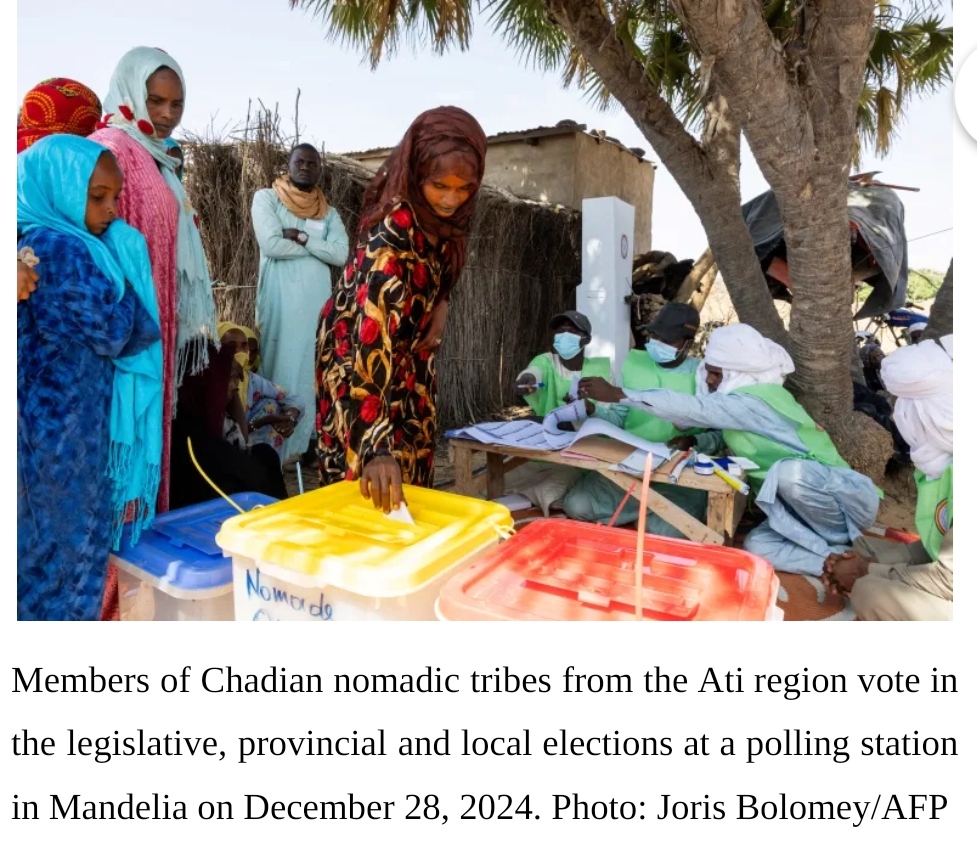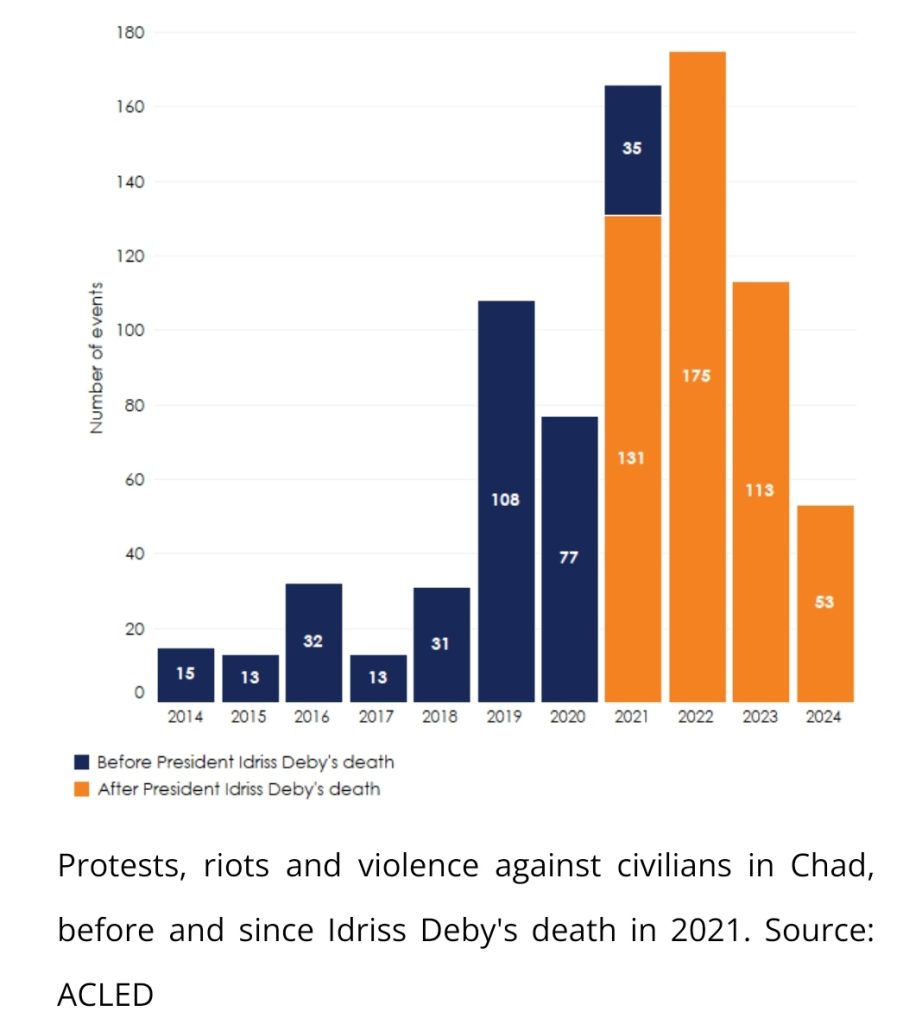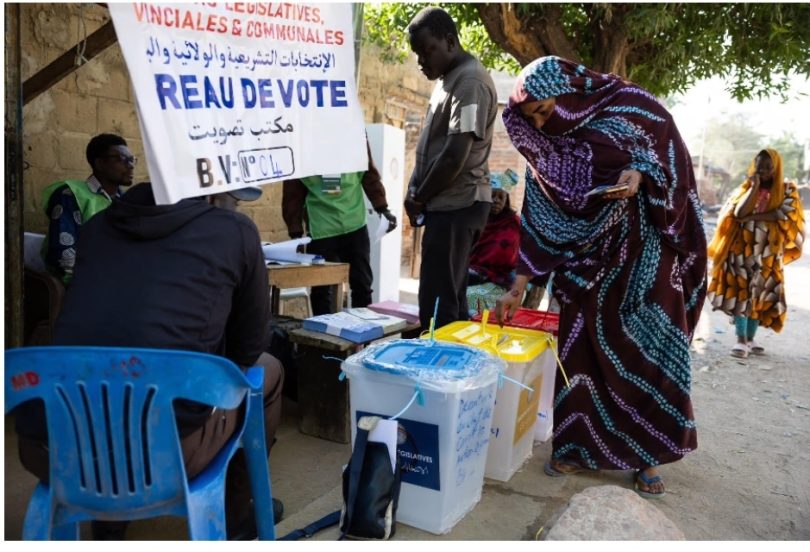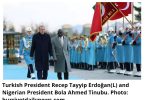In a watershed moment for Chad, the Central African country held its first parliamentary, regional, and municipal elections in over a decade. This long-awaited event, held on December 29, marked the end of a three-year transition period following the death of former President Idriss Deby Itno in 2021. Despite aspirations for democratic development, opposition party mistrust and worries about inclusivity hampered the voting process.
A Decade of Delayed Democracy
The elections were years late, no thanks to the political instability in the country, with repeated postponements blamed on political and security concerns. Chad, one of Africa’s poorest countries, has encountered several challenges, including regional conflict, insurgency, and political instability.

Following the death of Idriss Deby Itno, his son, Mahamat Idriss Deby, assumed power in a controversial military takeover. Initially positioned as a transitional leader, Mahamat Deby’s presidency was solidified after a contentious election in May 2024. The December 29 parliamentary elections were framed as a crucial step towards fulfilling promises of democratic reform.
A Divided Political Landscape
The elections were keenly anticipated, but not every Chadian wanted it. The elections saw 8.3 million registered voters out of Chad’s 18-million population cast their ballots to elect representatives for the 188-seat National Assembly. With 95 seats required for a majority, over 100 political parties fielded approximately 1,100 candidates. However, the process was marred by boycotts from key opposition groups, including the Transformers Party, who dismissed the elections as neither free nor fair.

The ruling Patriotic Salvation Movement (MPS), led by Mahamat Zen Bada Abbas, has been the dominant political force in Chad since 1996. The MPS, which now counts President Mahamat Deby as its honorary president, has controlled parliament for decades. Its coalition with allied parties like the Rally for Democracy and Progress (RDP) ensured a strong hold on the legislature. Other notable parties in the elections included the National Union for Democracy and Renewal (UNDR) and the National Rally of Chadian Democrats (RNDT). While both parties played significant roles in Chad’s political history, their influence has been limited by internal divisions and the overarching dominance of the MPS.
Chad’s elections proceeded against a backdrop of significant security concerns. The country’s eastern border remains volatile due to Sudan’s ongoing war, while Boko Haram’s insurgency continues to threaten areas around Lake Chad. Furthermore, Chad’s decision to terminate a military agreement with France has added to the complexities of maintaining stability.
Rights groups pointed out that the exclusion of key opposition parties undermines the credibility of the electoral process. Amnesty International’s country director for Nigeria, Isa Sanusi, remarked that “it will be difficult to have a credible election without inclusivity.”
The December 2024 parliamentary elections followed a controversial referendum in December 2023 that endorsed a new constitution and paved the way for fresh elections. Critics accused the government of using the referendum to legitimise Mahamat Deby’s continued rule.
The opposition’s distrust stemmed from previous incidents, such as the killing of opposition figure Yaya Dillo, a member of the Socialist Party Without Borders (PSF), in February 2023. Dillo’s death, along with the detention of other opposition members, fueled accusations of political repression. Human rights organizations have also documented abuses in Chad’s notorious Koro Toro prison, where many opposition members remain incarcerated.
President Deby’s May 2024 presidential election victory further deepened divisions. Securing 61.3% of the vote amid claims of electoral fraud, Deby’s win was met with allegations of vote-rigging and the suppression of dissent. His main challenger, Succes Masra of the Transformers Party, accused the government of undermining opposition efforts and resigned as prime minister to resume his role as an opposition leader.
Provisional Results and Reactions
The provisional results announced by Chad’s electoral commission on Saturday, January 11th indicate a decisive victory for the MPS, which secured 124 of the 188 National Assembly seats.
Despite the MPS’s framing of the elections as a step towards democracy, the 51.56% voter turnout and widespread opposition boycotts have raised questions about the legitimacy of the process.
Opposition parties have rejected the results, citing the exclusionary nature of the elections and alleged irregularities. Critics argue that the elections have reinforced the perception of a political dynasty under the Deby family rather than signifying genuine democratic progress.
Writing by Olivier Noudjalbaye Dedingar








